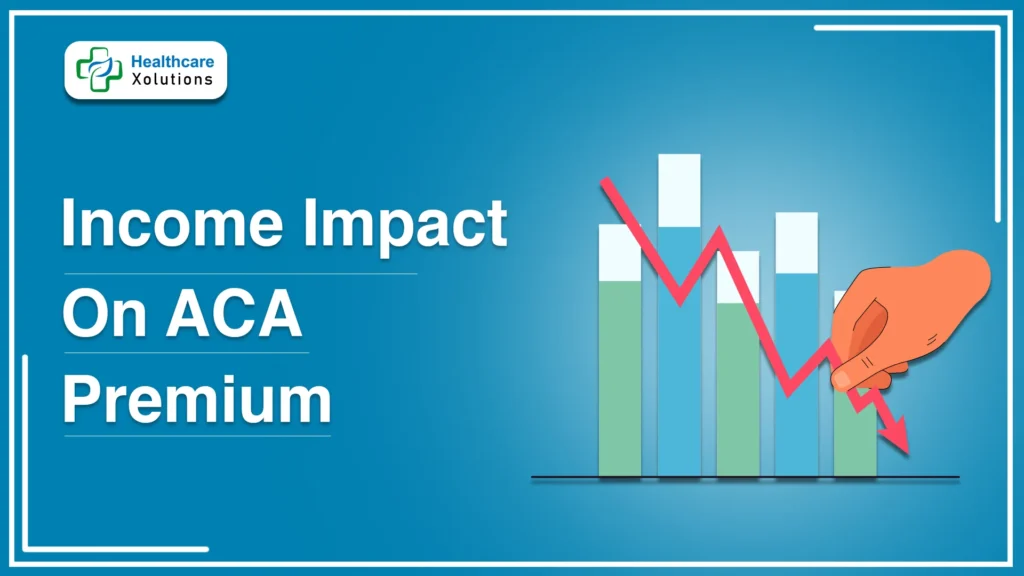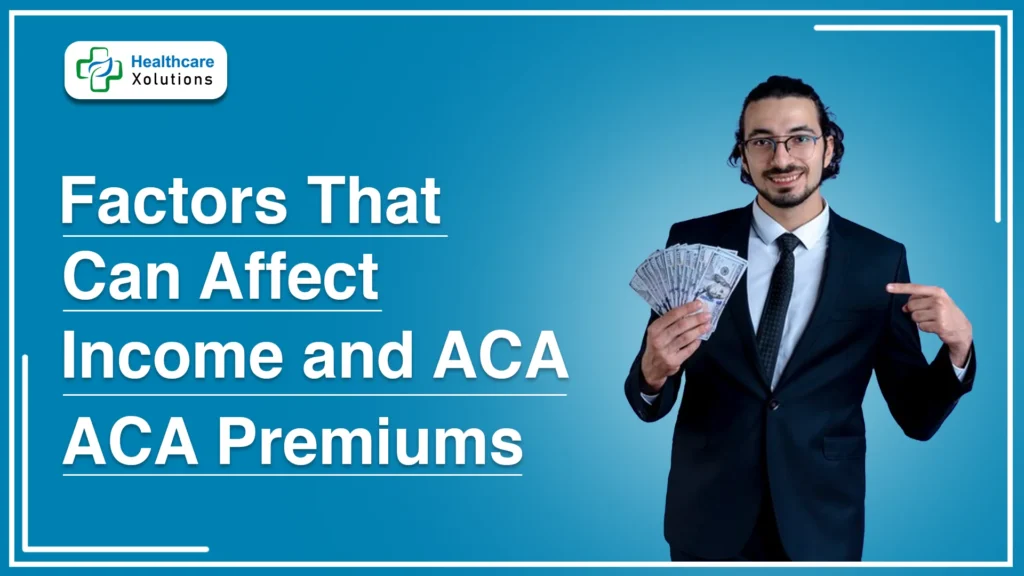Income Impact On ACA Marketplace Premiums | Ultimate Guide

Key Takeaways:
- Your income level significantly affects your eligibility for premium subsidies under the ACA.
- Regularly update the Marketplace with your current income to ensure correct premium subsidy calculations.
- Be prepared for possible repayments or additional subsidies during tax season if your income changes.
- Know the income thresholds for subsidy eligibility to avoid unexpected increases in premium costs.
- ACA premium subsidies are income-dependent, with eligibility ranging from 100% to 400% of the FPL.
- Enhanced subsidies allow individuals above 400% of the FPL to qualify if premium costs exceed 8.5% of income.
- Income fluctuations impact subsidy amounts, making it important to report changes to the marketplace.
- Factors such as household size, location, and income type influence subsidy eligibility.
- Keeping income information updated ensures the correct amount of financial assistance is received.
The Affordable Care Act (ACA) has significantly transformed the health insurance landscape in the United States. One of the key features of the ACA is the provision of subsidies that help lower the cost of health insurance premiums for eligible individuals. However, a person’s income plays a crucial role in determining their eligibility for subsidies and the amount they pay for ACA premiums. Understanding how income affects ACA premiums can help individuals and families make informed decisions about their health insurance options.
This article explores the relationship between income and ACA premiums, the factors involved, and the available assistance to lower costs.
Read more: How To Apply For ACA Insurance? A Complete Guide
Table of Contents
Income Impact On ACA Marketplace Premiums In 2024 – The Only Guide You Need:
1. Understanding the Premium Tax Credit:
The ACA provides a subsidy known as the Premium Tax Credit (PTC) to help lower-income Americans afford health insurance purchased through the ACA marketplaces. The amount of this credit is based on your income concerning the federal poverty level (FPL). Generally, individuals and families with an income between 100% and 400% of the FPL may qualify for some form of this tax credit.
2. Income Definition and Calculations:
For ACA purposes, income is calculated as your Modified Adjusted Gross Income (MAGI). This includes your adjusted gross income (AGI) on your tax return, plus any non-taxable Social Security benefits, tax-exempt interest, and foreign-earned income. Knowing how to accurately calculate your MAGI is crucial as it determines your eligibility for subsidies.
3. Sliding Scale of Contributions:
The ACA sets up a sliding scale where the amount you are expected to contribute to your premiums caps at a percentage of your income, based on the FPL. As your income increases, the percentage of income you’re expected to contribute to your health insurance also increases. For example, someone at 150% FPL might pay about 4-5% of their income towards premiums, while someone at 350% FPL could pay up to 9.5%.
4. Effect of Income Changes on Premiums:
Any changes in your income during the year can affect your premium tax credit. If your income increases and you’ve been receiving a premium subsidy, you might have to pay back some of the subsidy when you file your annual tax return. Conversely, if your income decreases, you might be eligible for a larger subsidy, potentially lowering your future premiums.
5. Reporting Income Fluctuations:
It’s important to report any changes in your income to the Health Insurance Marketplace as soon as possible. This adjustment ensures that your premium tax credit is accurately calculated, preventing large payments or refunds during tax season.
6. Subsidy Cliffs:
Be aware of the “subsidy cliffs.” If your income surpasses 400% of the FPL even by a small margin, you lose all eligibility for the premium tax credit. This can result in a significant increase in your health insurance costs. Planning and income management can help avoid this situation.
7. State-Specific Variations:
Some states have expanded their Medicaid programs to cover more people with lower incomes. If your income is very low, you might qualify for Medicaid instead of needing to purchase a plan through the Marketplace. This eligibility varies by state, so it’s essential to check your state’s guidelines.
Factors That Can Affect Income and ACA Premiums:

1. Household Size:
Larger households may qualify for more substantial subsidies because the FPL increases with household size. This adjustment allows families with multiple dependents to receive greater financial assistance.
2. Geographic Location:
Insurance premiums vary by location due to differences in the cost of healthcare services. Higher living costs in certain areas may lead to higher premiums, potentially increasing the need for subsidies.
3. Type of Employment and Income Source:
Self-employed individuals or those with seasonal work may experience income fluctuations that impact their ACA subsidy eligibility. It is important for such individuals to estimate their annual income as accurately as possible to avoid potential subsidy repayment.
4. Age and Tobacco Use:
Older individuals and tobacco users typically face higher insurance premiums. Although subsidies are primarily income-based, age and tobacco use can still affect the final amount one pays for coverage.
5. Reporting Income Changes to the Marketplace:
- Increase or decrease in wages or salary
- Changes in self-employment income
- Job loss or new employment
- Changes in household size due to marriage, divorce, birth, or adoption
- Receiving income from other sources like retirement accounts or rental properties
Failing to update income information can result in receiving incorrect subsidy amounts, leading to tax penalties or a reduced refund.
Steps To Take If Your Income Increases or Decreases:
If you experience a change in income, you may need to take steps to adjust your health insurance plan:
1. Updating Marketplace:
Log in to your marketplace account and report the change in income. The marketplace will recalculate your subsidy and adjust your premium payments accordingly.
2. Changing Plans:
You may consider switching to a less expensive plan if you no longer qualify for a subsidy due to a significant income increase. Similarly, if your income decreases, you may be eligible for a plan with lower out-of-pocket costs.
Conclusion – Income Impact On ACA Marketplace Premiums:
Income plays a crucial role in determining the cost of ACA premiums and subsidy eligibility. With the expansion of premium tax credits under the American Rescue Plan and the Inflation Reduction Act, more individuals and families can access affordable health insurance coverage. However, keeping your income information current is essential to avoid unexpected costs or tax liabilities. By understanding how income impacts ACA premiums, individuals can better navigate their health insurance options and make the most of the financial assistance available.
